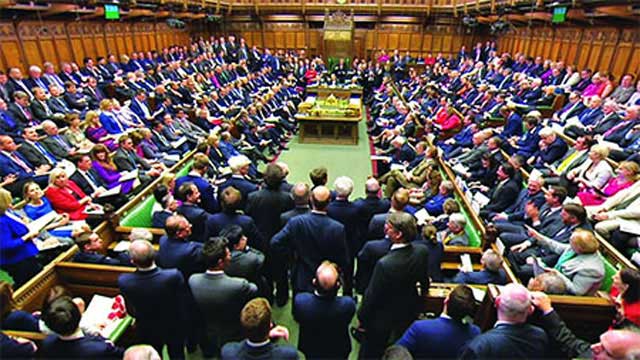London, Nov 30 (Just News): The main opposition party, the Bangladesh Nationalist Party (BNP), has now decided to participate in the 30 December elections, despite being unable to achieve its longstanding preconditions for doing so: the release of the BNP’s leader, Begum Khaleda Zia, from prison so that she can stand as a candidate; and the establishment of a neutral caretaker administration to oversee the elections.
House of Commons on Thursday came up with this comment in its ‘Research Briefing’ report over Bangladesh upcoming election prospects.
The report said, “Some argue that its decision to do so this time means that the 2018 elections will be more credible than many observers originally expected. But the ‘playing field’ remains far from level. Official harassment of political opponents remains intense. The AL enjoys the advantages of incumbency.”
About Election Commission the report said, “There are long-standing concerns about the independence of the election commission. Electronic voting machines are being used for the first time in national elections. The BNP is opposed to them.
Overall then,the degree of trust over the ‘rules of the game’ remains low. There are fears that this could foment violence and instability, whether during the election campaign or once the results have been announced. The AL government has said that troops will be deployed a fortnight before the elections to ensure security.”
It has been argued that the EU’s decision not to send a full-blown observer mission shows that there is considerable international scepticism about the elections. The Commonwealth has not yet said whether it will send an observer mission.
Most pundits are still expecting a victory for the incumbents, Prime Minister Sheikh Hasina and the Awami League, but the result could be closer than previously anticipated.
Taking the longer view, the UK-based academic Mushtaq Khan has warned that, given the political climate since 2008, another AL victory could mean the entrenchment of single-party rule and a further slide towards political authoritarianism. He argues that this could undermine the economic and social achievements of recent decades, which have been made possible by a political settlement in Bangladesh based on “competitive clientelism” and multi-party democracy.
Critics have continued to be concerned about abuses of human rights, including the misuse of criminal charges, unlawful killings and ‘disappearances’.
The main opposition party, the Bangladesh Nationalist Party (BNP), has oscillated throughout the year over whether it would participate in the elections. It has consistently called for two things to happen if it was to take part:
• the release of its leader, Khaleda Zia, from prison following her conviction on corruption charges in February 2018, so that she can stand in the elections;
• and agreement by the ruling Awami League (AL), led by Prime Minister Sheikh Hasina, that the elections would be held under the auspices of a neutral caretaker institution. This used to be provided for under the Constitution until the AL government amended it in 2011.
It has secured neither of these goals.
At the end of October, Khaleda Zia’s original five-year prison sentence was doubled following a court appeal by the Anti-Corruption Commission. A few days earlier, she had been convicted in another corruption case and given a seven-year sentence.
Having been allowed out of prison in October to receive hospital treatment in observance of a court order, there were hopes that this might be a prelude to her release. But these hopes were dashed when she was returned to prison in November.
All hope seems finally to have been extinguished by a 28 November Supreme Court ruling upholding the verdict of a lower court that nobody sentenced to more than two years in jail or awaiting appeal can run for election.
Dozens of other criminal charges hang over her and other BNP leaders.
In October, the BNP said that it would not be participating in the elections, announcing that it was preparing to launch street protests instead. To the surprise of many observers, in late-October – just days before the election commission was expected to announce the date of the elections – the AL government offered to meet with opposition parties and hold a dialogue.
Although the talks produced little by way of concrete results, on 11 November the BNP reversed its stance, announcing that it would participate in the elections after all. By then, a date of 23 December had been announced. The BNP subsequently appealed to the election commission to push the date back by a month. The commission agreed to a one-week delay, meaning that the date for the elections has now been confirmed as 30 December.
The BNP claims that many hundreds more of its activists have been arrested during November. A few weeks ago, it also said that Internet access at the party’s headquarters was being disrupted. The AL has accused BNP supporters of attacking the police during recent protests.
On Rohingya issue the report said, “Meanwhile, efforts earlier this month by the Bangladeshi and Burmese authorities to begin the repatriation to Burma of nearly one million Muslim Rohingya refugees stalled due to UN and Western pressure.”
(Justnews/ys/2300hr)





